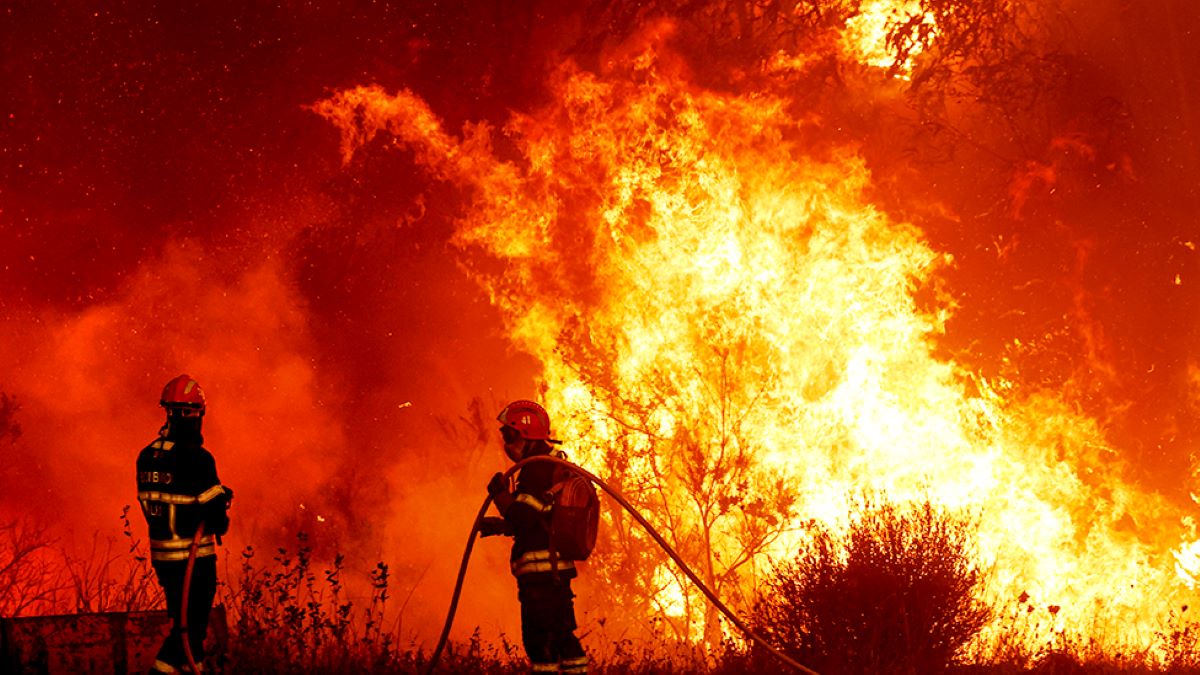Seven people have been killed, and more than 50 injured as wildfires continue to devastate central and northern Portugal, authorities reported.
Among the victims were three firefighters who tragically lost their lives on Tuesday when their vehicle became trapped by the flames.
Portugal’s civil protection service said 54 wildfires were burning across the country, mostly in the northern regions, with 5,300 firefighters deployed to combat the blazes.
Assistance came from France, Greece, Italy, and Spain, which contributed eight water-bombing planes through the EU’s mutual assistance mechanism.
Over 1,000 firefighters worked throughout Monday night to control four separate fires near the towns of Nelas and Aveiro, south of Porto. Television footage showed residents frantically trying to hold back the flames by throwing buckets of water on the rapidly advancing fire.
In Aveiro alone, the wildfires have scorched more than 10,000 hectares (24,710 acres) of forest and scrubland over the past two days, a size equivalent to the total area burned by fires in Portugal this year.
The national civil protection commander, Andre Fernandes, confirmed that the three firefighters who died—a man and two women—were killed near Nelas. Four other civilians, including a man retrieving tools from his shed, were also reported dead on Monday.
Fernandes warned that the fires, which have forced the closure of two railway lines and several highways, including a portion of the main road between Lisbon and Porto, could burn an additional 20,000 hectares of land.

Portugal Wildfires (Photo: Shutterstock)
Experts noted that Monday’s weather conditions posed the highest fire risk in northern Portugal since 2001. Fernandes described the situation as “very complex,” adding that Tuesday would be another “very difficult” day.
Portugal’s prime minister, Luís Montenegro, canceled his scheduled engagements on Tuesday in response to the escalating crisis, acknowledging that the country was facing “very difficult times” in the coming days. An extreme fire warning has been extended until Thursday night.
While Portugal and Spain had seen fewer wildfires earlier this year due to a wet start, the weekend brought temperatures exceeding 30°C, combined with low humidity and strong winds that have fueled the fires.
In response to past deadly blazes, including the 2017 fires that claimed 64 lives, the Portuguese government increased fire-prevention funding tenfold and doubled its firefighting budget.
Experts have pointed to human-caused climate change as a driving factor behind the increase in extreme weather events, including wildfires, floods, heatwaves, and droughts.
Scientists warn that global heating is intensifying heatwaves, making them more frequent and severe.
Some, like the extreme heatwave in western Canada and the US in 2021, have been deemed virtually impossible without the impact of climate change.
